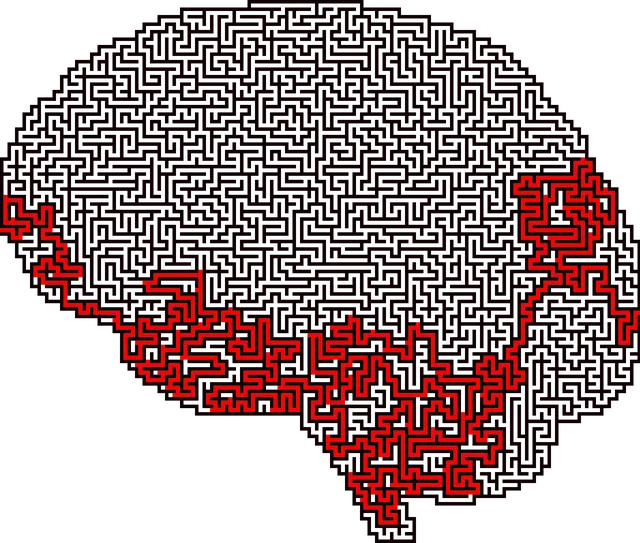Mental Wellness Self-Assessment tools, like those offered by Kaiser Permanente behavioral health services in Lone Tree, are crucial for individual well-being, especially in healthcare. These comprehensive assessments encourage self-reflection, identify areas of support (e.g., stress management), and promote inner strength, fostering sustainability and resilience. The holistic approach of Kaiser Permanente Lone Tree incorporates innovative techniques for anxiety relief and emotional well-being, empowering individuals to lead balanced lives. This model demonstrates their commitment to long-term mental health and overall community wellness. Effective self-assessment tools should be multifaceted, integrating evidence-based practices and personalized strategies, providing deep insights into psychological well-being and actively supporting mental wellness enhancement. Their integration significantly improves access for diverse communities, enabling early detection of mental health issues and reducing healthcare costs through data-driven advocacy.
“Mental wellness self-assessment tools play a pivotal role in empowering individuals to take charge of their mental health. This article explores the development of such tools, drawing insights from the successful Kaiser Permanente approach and the local focus on mental wellbeing through Lone Tree’s behavioral health services. We’ll delve into the essential features and considerations for comprehensive assessment, and examine how these tools enhance access to mental healthcare.”
- Understanding Mental Wellness Self-Assessment: The Kaiser Permanente Approach
- Behavioral Health Services in Lone Tree: A Local Focus on Mental Wellbeing
- Developing Effective Tools: Features and Considerations for Comprehensive Assessment
- Implementation and Impact: Enhancing Mental Healthcare Access through Self-Assessment
Understanding Mental Wellness Self-Assessment: The Kaiser Permanente Approach

Mental Wellness Self-Assessment tools have gained significant importance in promoting individual well-being, especially within healthcare sectors. Organizations like Kaiser Permanente recognize the value of empowering individuals to take charge of their mental health through self-assessment. Their approach focuses on a holistic understanding of behavioral health, addressing not just symptoms but also underlying factors contributing to an individual’s overall wellness.
The Kaiser Permanente behavioral health services in Lone Tree, for instance, have developed tools that encourage introspection and self-reflection. These assessments aim to identify areas where one might need support, such as stress management, self-esteem improvement, or burnout prevention strategies for healthcare providers. By fostering inner strength development, these tools enable individuals to make informed decisions about their mental wellness, creating a more sustainable and resilient mindset.
Behavioral Health Services in Lone Tree: A Local Focus on Mental Wellbeing

In Lone Tree, Kaiser Permanente’s behavioral health services stand as a testament to the local community’s commitment to mental wellbeing. These services are designed to cater to various aspects of emotional and psychological health, offering comprehensive support for residents navigating life’s challenges. With a focus on early intervention and prevention, they aim to foster robust burnout prevention strategies for healthcare providers within their reach.
Beyond addressing acute issues, the program incorporates innovative Anxiety Relief techniques and promotes Emotional Well-being Promotion Techniques as integral parts of its holistic approach. By prioritizing mental health, Kaiser Permanente Lone Tree empowers individuals to lead balanced lives, ensuring resilience against stress and fostering a sense of overall well-being in the community.
Developing Effective Tools: Features and Considerations for Comprehensive Assessment

Developing effective mental wellness self-assessment tools is a multifaceted process designed to provide individuals with valuable insights into their psychological well-being. These tools, akin to the comprehensive programs offered by Kaiser Permanente behavioral health services in Lone Tree, must be meticulously crafted to capture various aspects of mental health. Incorporating elements from evidence-based practices like Compassion Cultivation, these assessments should go beyond simple questionnaires.
A robust tool should offer interactive features such as Mental Wellness Journaling Exercise Guidance to encourage reflection and self-exploration. It should also guide users in crafting personalized Self-Care Routine Development strategies tailored to their unique needs. By integrating these components, the assessment becomes a dynamic resource that not only evaluates mental wellness but actively supports its enhancement, mirroring the holistic approach advocated by leading behavioral health services.
Implementation and Impact: Enhancing Mental Healthcare Access through Self-Assessment

The implementation of self-assessment tools plays a pivotal role in improving mental healthcare access, particularly in areas like the Kaiser Permanente behavioral health services Lone Tree. These tools empower individuals to proactively assess their mental wellness, fostering a sense of agency and enabling early intervention. By integrating self-assessment into routine healthcare practices, professionals can identify subtle signs of distress or emerging mental health concerns that may otherwise go unnoticed. This approach is especially beneficial in diverse communities, ensuring that those who might face barriers to seeking professional help due to stigma, limited resources, or cultural differences have accessible means to gauge and address their mental well-being.
Beyond individual benefits, widespread adoption of such self-assessment methods can inform Mental Health Policy Analysis and Advocacy efforts. The data collected through these tools can contribute to a comprehensive understanding of mental health trends within specific populations, guiding policy decisions and resource allocation. Moreover, the process of developing resilient coping skills through self-assessment may lead to reduced healthcare costs associated with treating severe mental health disorders. This holistic approach not only enhances accessibility but also promotes community resilience and overall well-being.
Mental wellness self-assessment tools, as demonstrated by Kaiser Permanente’s approach and the success of local initiatives like Lone Tree’s behavioral health services, are transforming mental healthcare access. By providing individuals with effective assessment methods, these tools empower people to take charge of their mental wellbeing. As highlighted in this article, comprehensive assessments should include diverse factors, be user-friendly, and offer tailored recommendations. Continued development and implementation of such tools will significantly enhance the accessibility and quality of mental healthcare for all.






